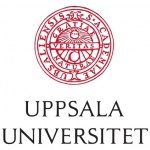This project was made possible through a grant from Uppsala Universitet, International Science Programme (ISP)
Astronomy Teaching and Research Orientation Workshop (AsTROW)
Date: 15 to 19 October 2012
Venue: South African Astronomical Observatory, Cape Town
Target: Small group (<10) lecturers from South African Physics Departments
Summary:
This programme aims to provide hands-on training on observational astronomy using both real and virtual observatories and is targeted at interested people from under-resourced universities.
Small aperture optical telescopes (6-8 inches) with adequate back-end instrumentation such as a photometer can be effectively used for teaching and research in astronomy. This is ideally suited for projects such as continuous monitoring of a variety of variable stars which in turn can provide valuable data for understanding the physics of stellar variability. Below we outline some of the projects that can be used for student training in observing techniques, data acquisition, reduction and analysis, as well as interpretation of the results:
- Measurement of atmospheric extinction
- Photometric calibration of telescope-photometer system
- H-R diagram of nearby bright stars and star clusters like Pleiades
- Tracing light curves of various types of variable stars, such as cepheids, Delta Scuti stars, eclipsing binaries like Algol
Apart from this, data archives within the framework of virtual observatories provide vast astronomical resources, along with very easy-to-use but highly sophisticated analysis techniques. These techniques allow interested people to conduct highly informative projects/exercises with relatively simple and inexpensive software tools. The Virtual Observatory (VO) is not only a powerful medium to provide training and education but also provides resources to conduct astronomical research projects. Below we listed some VO projects that can used for training, education and research:
- Proper motion of stars
- H-R diagram of star clusters using SDSS data
- X-ray spectroscopy of Supernova remnants
- Galaxy clusters in SDSS
The workshop will be divided into three parts:
1. Lectures:
- Basic astronomy
- Telescopes/CCDs
- Basic knowledge of Stars and Galaxies
2. Tutorials (hands-on data reduction and data mining)
- Lab session on computers
- Learning Linux
- Browsing data archives
- Getting familiar with data reduction recipes
3. Observing at night
- Glimpse of night sky,
- Identifying objects – stars/star clusters/ planets etc.
- Operating the telescope and instrument
- Pointing telescope and acquiring data etc.
Program for the 5 days workshop
Day 1 (15th October 2012):
08:30 Registration
09:00 Introduction
09:15 Basic Astronomy
10:30 Coffee break
11:00 Astronomy Instrumentation (telescopes, CCDs, photometers)
12:00 Techniques used to discover the universe (how we know what we know)
13:00 Lunch
14:00 Instrumentation Tutorial (using a telescope, CCD, photometer; some project examples; data reduction; photometric techniques)
18:00 Supper
19:00 Stargazing and introduction to data collection
Day 2 (16th October 2012):
09:30 Introduction to VO and “astro-informatics”
10:30 Coffee Break
11:00 Browsing data archives (VO tools)
12:00 Introduction to Linux
13:00 Lunch
14:00 Instrumentation and Data reduction tutorial with sample data
16:00 Revision of using instrumentation and discussion of targets for the evening
18:00 Supper
19:00 Collecting data using telescope/CCD/photometer
Day 3 (17th October 2012):
10:30 Coffee
11:00 Analysing and discussing of own data 1
13:00 Lunch
14:00 VO tutorials 1
18:00 Supper
19:00 Observation time
Day 4 (18th October 2012):
10:30 Coffee
11:00 Analysing and discussing of own data 2
13:00 Lunch
14:00 VO tutorials 2
16:00 Discussion of other applicable projects for home universities
18:00 Supper
Day 5 (19th October 2012):
09:00 Networking and planning time for development of specific programmes at home institutions, e.g. introducing such activities into Physics curriculum; potential follow up visit to home institutions by astronomers; etc
12:30 Lunch and depart

